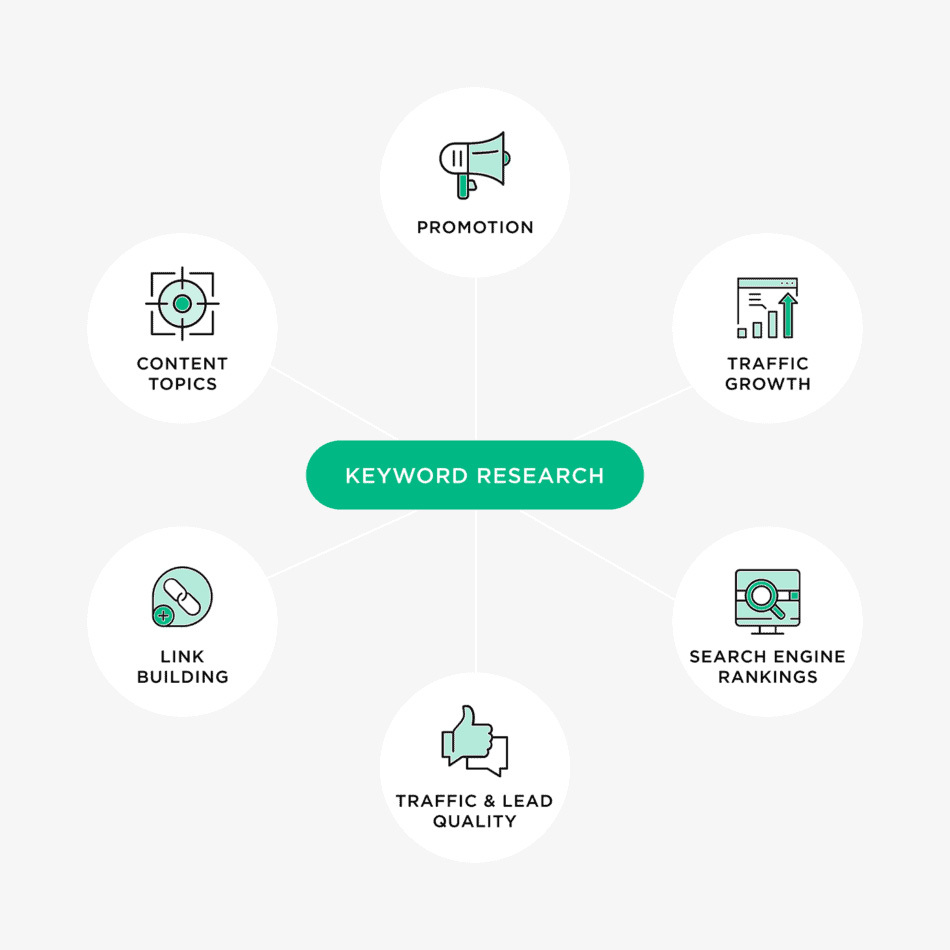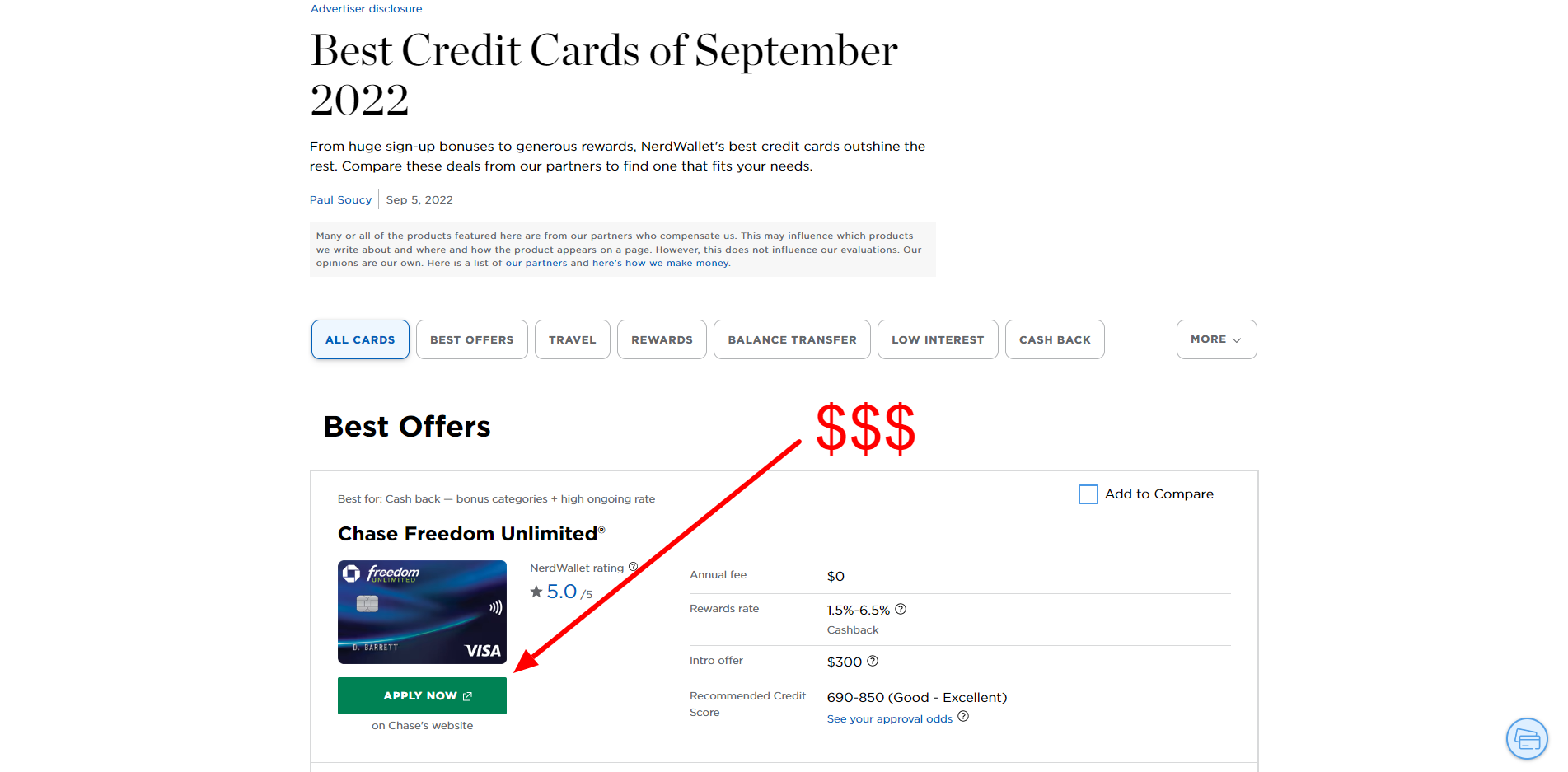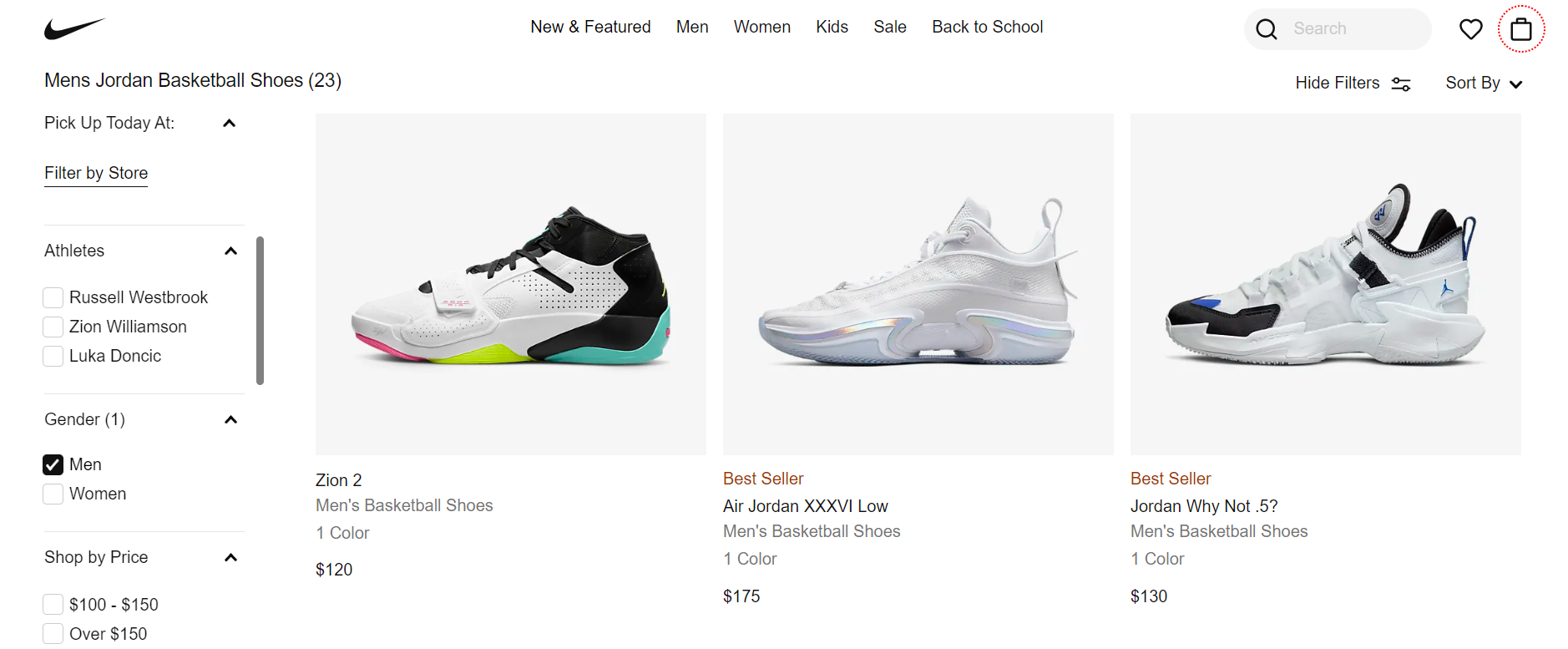Lesson 2 Intro: Keyword Research
Article by: Matt Polsky
Now that you have a baseline of what SEO is and are somewhat familiar with broad search algorithms, let's look at one of the most critical SEO processes: keyword research.
What is Keyword Research?
Keyword research is the process of finding and analyzing queries that people enter into search engines.
Effective keyword research involves identifying keywords that your customers, clients, viewers, etc., search so that you can create products, content and resources to fill that audience's needs.

Why Keyword Research is Important
Keyword research is essential because it provides insight into what people search and how often. SEOs use this information to know what keywords to target when creating content or optimizing a page.
SEO processes using keyword research include, but aren't limited to:
- Generating article ideas and topics.
- Optimizing current content (title tag, headings, topics to include, etc.)
- Producing article outlines for yourself or freelancers with necessary headings and subheadings for a target keyword/intent (often referred to as a creative brief).
- Validating and prioritizing editorial calendars.
- Optimizing anchor text for internal and external inks.
In future lessons, we'll put this all into practice.

Keyword Strategy
Keyword research and strategy can vary by niche and monetization type.
Monetization is typically the guiding light of any keyword strategy. After all, if you don't find keywords that help you monetize, you won't be in business very long.
Below we look at a few monetization options and how they impact keyword strategies.

B2C
B2C strategies typically involve finding keywords that target consumers at different stages of their product funnel and providing education around the purchase decision they're about to make.
For example, the insurance company Progressive has a section of their site called Progressive Answers, where they answer questions about insurance and the insurance process.
Why do they do this? Simple. It's all about the money. They provide high-quality, educational content to rank for search terms and drive traffic to CTAs like in the screenshot below that can turn into insurance clients.

Where do you think Progressive got the idea to write the subheadline "What does 'full coverage' car insurance mean?" Or, better question, why did they decide to write "full coverage car insurance" instead of "full coverage auto insurance?"
They got it from doing keyword research! Just take a look at the difference in traffic potential.

Affiliate
Affiliate marketing is where you promote another company's product or service in return for a commission on the sales or leads you generate.
Most affiliate programs run through an aggregator like Commission Junction, FlexOffers or ShareASale. These platforms provide a marketplace where companies can post offers and publishers, influencers, etc., can sign up and earn commissions on their sales.
You can also go directly to the source in some cases, such as the Amazon affiliate program, eBay or almost any hosting company (hosting commissions are huge because of LTV). These aren't the only platforms or direct sources. There are many different opportunities out there.

If you're an affiliate marketer, you will do keyword research around each product or service you get paid for to ensure you're ranking for long-tail terms and getting more sales.
If you're curious how this works from a content perspective, check out CNN Underscored or the Strategist from New York Mag - both sections dedicated to generating revenue from affiliate programs.

Another example of an affiliate is the personal finance site NerdWallet. NerdWallet reviews credit cards, lenders, insurance companies, different financial products and more to get searchers into one of their conversion funnels. Affiliate conversions for NerdWallet include credit card applications and lead generation for lenders and insurance companies.
If you go to almost any "best" or "top" search, odds are the site ranking highly (like NerdWallet) is getting paid for any recommendation they provide.

E-Commerce
E-commerce monetization comes from selling products online (Amazon.com, Target.com, etc.). You could lump E-commerce in with B2C, but the keyword strategy for an e-commerce site varies enough that it deserves its own category.
E-commerce sites generally focus their keyword strategy around individual products (Nike Air Jordan 37s basketball shoes), narrow category pages (Nike Air Jordan basketball shoes), broad category pages (basketball shoes) and "best" lists like affiliate sites (best basketball shoes).
There could be hundreds of thousands to millions of pages on an e-commerce site, so creating a keyword strategy at scale, typically through data and automation, is what you'll typically find.

Display Advertising
The last common monetization model we'll cover is display advertising.
Display advertising typically runs through networks like Google AdSense or Facebook and provides audience and cookie-based targeting. Odds are you've seen a display ad - or even clicked on one - even if you didn't realize it.
Display ads are the catch-all of site monetization. Sites that typically utilize display advertising are news sites and blogs without a defined target or conversion funnel.
The benefit of display for publishers is you can monetize traffic that doesn't typically convert. The downside is that it's a pure volume game. Revenue on AdSense is typically low - $1 to $3 per thousand visits. Even at $3 per thousand, you'd need 100,000 visits in a day to make $300.
There's no good keyword strategy here beyond finding keywords that get as much traffic as possible.

Keyword Research Terms to Know
Before going directly into the processes and how to perform keyword research, here are some terms you should familiarize yourself with.
Competition: You may see competition or competition scores in tools like Google's Keyword Planner. In Keyword Planner, these scores are for paid competition. Tools like Ahrefs and Semrush will show organic competition (sometimes called Keyword Difficulty), but it can be a subjective metric. Whenever you see a competition metric on any tool, check if it's comparing paid or organic.
CPC: CPC stands for Cost Per Click. CPC is a paid search term but is often included in keyword research tools because SEOs and PPC experts use these tools for competitive analysis.
Intent: Intent is what someone hopes to achieve. Search engines typically group keywords by intent. For example, "VA loan eligibility" and "VA loan requirements" have the same intent - determining if you can get a VA loan.
Keyword Difficulty (KD): Keyword Difficulty is an estimate of how hard it is to rank in the top 10 organic search results for a keyword on a 100-point scale. KD comes from Ahrefs, but other tools have similar features. Take organic difficulty metrics with a grain of salt, as they don't always represent the ease or difficulty of ranking for a given keyword.
Long-Tail: Long-tail keywords are more specific search terms. The search volume and competition for these keywords are typically lower, but the users generally are closer to converting or making a purchase decision. For example, "FHA loan first-time homebuyer requirements" is a long-tail keyword.

Search Volume: Search volume estimates how many monthly searches a particular keyword receives. Search volume typically comes from Google's Ad Planner (even with tools like Ahrefs and Semrush). Moz uses its internal data to estimate search volume. However, their dataset is much smaller, making it less reliable.
Seed List: A seed list is a basic set of terms to build an entire keyword group. For example, "mortgage" could be a seed keyword that expands into "USDA mortgage requirements."
In our next lesson, we dive into the process behind keyword research and the tools you can use to get the data.
